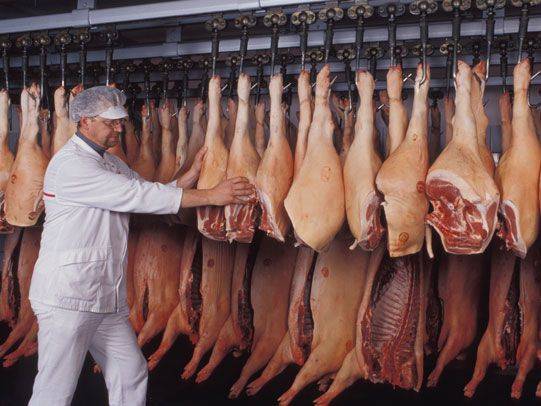Germany, renowned for its efficiency and precision in various industries, also boasts a robust beef industry that reflects its commitment to quality and sustainability. Despite challenges such as stringent regulations and increasing consumer preferences for alternative diets, the German beef industry remains resilient, supported by technological advancements and a tradition of excellence. Let’s delve into the landscape of the German beef industry, exploring its key players and the top 10 largest beef producers in the country.
Overview of the German Beef Industry
Germany stands as one of the leading beef producers in Europe, characterized by a diverse landscape of small-scale family farms and larger commercial enterprises. The industry operates under strict regulations enforced by the European Union (EU), ensuring high standards of animal welfare, food safety, and environmental sustainability.
German beef production encompasses various cattle breeds, including traditional breeds like Angus and Hereford, as well as native German breeds such as Fleckvieh and Gelbvieh. These breeds contribute to the unique flavor profiles and quality of German beef products, prized by consumers both domestically and internationally.
Despite facing challenges such as rising production costs and competition from alternative protein sources, the German beef industry continues to thrive, driven by innovation and a commitment to meeting evolving consumer demands.
Unveiling the German Beef Industry: A Look into the Top 10 Producers
- Vion Food Group: Vion is one of the largest meat processing companies in Europe, with a significant presence in Germany. It operates multiple facilities across the country, specializing in the processing of beef, pork, and poultry.
- Tönnies Group: Tönnies is a major player in the German meat industry, with a focus on beef and pork processing. The company operates several slaughterhouses and meat processing plants, contributing significantly to Germany’s beef production output.
- Westfleisch: Westfleisch is a cooperative of agricultural producers, primarily engaged in the production and processing of pork. However, the company also plays a role in the beef industry, with a diverse portfolio of beef products supplied to domestic and international markets.
- Fleischhof Rasting: Fleischhof Rasting is a family-owned meat processing company based in Lower Saxony, Germany. It specializes in the production of high-quality beef and pork products, catering to both retail and foodservice sectors.
- PHW Group: PHW Group is a diversified food company with interests in poultry, turkey, and beef production. While poultry remains its primary focus, the company’s beef division contributes significantly to Germany’s overall beef production.
- Allfrisch GmbH & Co. KG: Allfrisch is a leading supplier of fresh and frozen meat products in Germany. The company sources beef from domestic and international suppliers, processing it into various cuts and value-added products for distribution nationwide.
- Nordfleisch: Nordfleisch is a cooperative of farmers and producers in Northern Germany, specializing in the production and processing of pork and beef. The company’s beef division plays a vital role in supplying regional and national markets with high-quality beef products.
- Hofgut Kassuhn: Hofgut Kassuhn is a family-owned farm and meat processing facility located in Brandenburg, Germany. It focuses on sustainable and organic beef production, catering to niche markets that value ethically produced meat products.
- Landfleischerei Dehlwes: Landfleischerei Dehlwes is a traditional butcher shop and meat processing company based in Lower Saxony, Germany. It sources beef from local farmers, emphasizing traceability and transparency in its production processes.
- Gut Bartenhof: Gut Bartenhof is an agricultural estate in Bavaria, Germany, known for its sustainable farming practices and premium beef products. The estate operates its own cattle farm, ensuring full control over the production chain from pasture to plate.
Conclusion
The German beef industry remains a cornerstone of the country’s agricultural sector, characterized by innovation, quality, and sustainability. While facing challenges such as changing consumer preferences and market dynamics, the industry continues to adapt and thrive, supported by a diverse array of producers and processors. As Germany maintains its position as a leading beef producer in Europe, its commitment to excellence ensures a bright future for the industry and its stakeholders.
Related: The Top 10 Largest Beef Producing Countries in Europe




